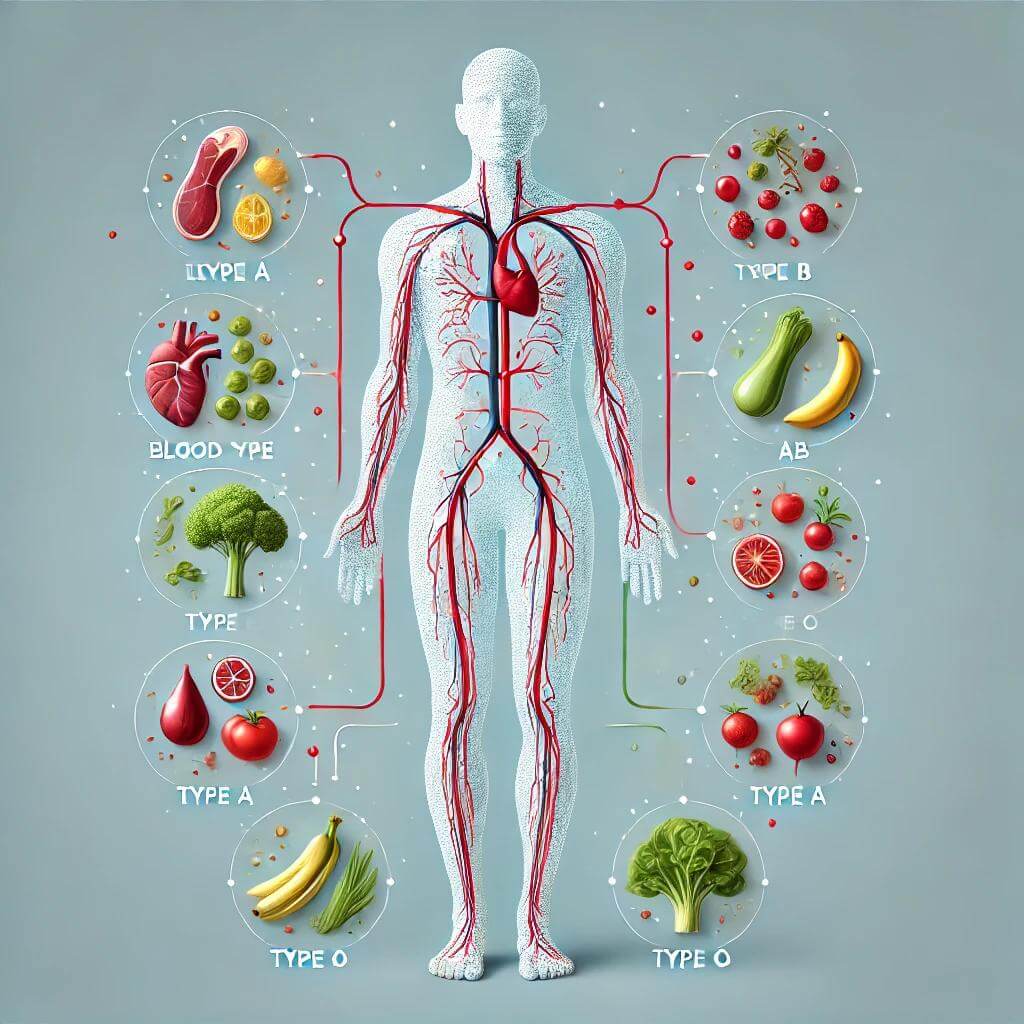Choosing the Best Diet: Tailoring Nutrition to You
Choosing the right diet can be a daunting task with so many options available, each promising significant health benefits and weight loss results. The key to success lies in selecting a diet that aligns with your personal needs, lifestyle, and health goals. This comprehensive guide will help you navigate the complexities of diet choices, providing insights into how to find the one that’s best suited to you.
Factors to Consider When Choosing a Diet
1. Understand Your Health Goals
- Weight Loss: If your primary goal is weight loss, consider diets that emphasize calorie control, portion sizes, and balanced nutrition. Popular choices include the Mediterranean diet, the ketogenic diet, and calorie-counting approaches.
- Muscle Gain: For those focused on building muscle, a diet rich in proteins and healthy fats is essential. The high-protein diet and the paleo diet are popular among fitness enthusiasts.
- Health Conditions: Specific diets can help manage conditions like diabetes, heart disease, or high blood pressure. For example, the DASH diet is designed to lower blood pressure, while the low-glycemic diet is beneficial for managing diabetes.
2. Assess Your Lifestyle
- Busy Schedule: If you have a hectic lifestyle, opt for a diet that is easy to follow and doesn’t require extensive meal preparation. The intermittent fasting diet or the smoothie diet might be good choices.
- Social Life: If social dining is a big part of your life, consider diets that allow flexibility, such as the flexible dieting approach or the Mediterranean diet, which incorporates a wide variety of foods.
- Cooking Skills: Your cooking skills and interest in food preparation can influence your diet choice. For example, if you enjoy cooking, you might find the Whole30 diet or plant-based diets more enjoyable.
3. Evaluate Nutritional Balance
- Macronutrient Composition: Consider the macronutrient balance (carbohydrates, proteins, fats) of each diet. A balanced diet like the Mediterranean diet includes all macronutrients in moderate proportions, while the ketogenic diet is high in fats and low in carbs.
- Micronutrient Sufficiency: Ensure the diet provides adequate vitamins and minerals. Diets that heavily restrict food groups, such as vegan or ketogenic diets, may require supplementation to meet micronutrient needs.
4. Consider Sustainability
- Long-Term Viability: Choose a diet that you can maintain long-term without feeling deprived. Diets that are too restrictive, such as the Atkins or extreme low-calorie diets, often lead to burnout and are difficult to sustain.
- Flexibility: A flexible diet allows for occasional indulgences without derailing your progress. The 80/20 approach, where you eat healthily 80% of the time and allow treats 20% of the time, is a sustainable option.
5. Personal Preferences
- Food Preferences: Select a diet that aligns with your food preferences. If you love vegetables and fruits, a plant-based diet may be ideal. If you prefer a higher protein intake, consider the paleo or high-protein diet.
- Ethical and Environmental Considerations: If sustainability and animal welfare are important to you, a plant-based or vegetarian diet might be the best fit.
6. Consult a Healthcare Professional
- Medical Advice: Before starting any diet, especially one that involves significant changes to your eating habits, consult with a healthcare professional or a registered dietitian. They can provide personalized advice based on your health status and goals.
Popular Diet Options and Their Benefits
1. Mediterranean Diet
- Overview: Emphasizes whole grains, fruits, vegetables, nuts, seeds, fish, and olive oil. It’s low in red meat and processed foods.
- Benefits: Supports heart health, reduces the risk of chronic diseases, and is rich in antioxidants and anti-inflammatory compounds.
- Sustainability: Highly sustainable due to its variety and flexibility.
2. Ketogenic Diet
- Overview: High-fat, low-carbohydrate diet that forces the body into ketosis, a state where it burns fat for energy instead of carbohydrates.
- Benefits: Effective for weight loss, improving insulin sensitivity, and managing epilepsy.
- Sustainability: May be challenging to sustain long-term due to its restrictive nature and limited food choices.
3. Paleo Diet
- Overview: Based on the eating patterns of our ancestors, this diet includes lean meats, fish, fruits, vegetables, nuts, and seeds while avoiding processed foods, grains, and dairy.
- Benefits: Promotes weight loss, reduces inflammation, and improves gut health.
- Sustainability: Moderate sustainability; may be difficult for those who rely on grains and dairy.
4. Vegan Diet
- Overview: Excludes all animal products, focusing on plant-based foods such as vegetables, fruits, grains, legumes, nuts, and seeds.
- Benefits: Reduces the risk of chronic diseases, supports weight loss, and is environmentally sustainable.
- Sustainability: Highly sustainable for those who commit to the lifestyle; requires careful planning to ensure nutritional adequacy.
5. Intermittent Fasting
- Overview: Focuses on when you eat rather than what you eat. Common methods include the 16:8 method (fasting for 16 hours, eating within an 8-hour window).
- Benefits: Supports weight loss, improves metabolic health, and simplifies meal planning.
- Sustainability: Sustainable for those who can manage longer periods without eating; may be difficult for individuals with irregular schedules.
6. DASH Diet
- Overview: Designed to lower blood pressure, this diet emphasizes fruits, vegetables, whole grains, lean proteins, and low-fat dairy.
- Benefits: Reduces blood pressure, supports heart health, and is balanced in nutrients.
- Sustainability: Highly sustainable due to its flexibility and focus on whole foods.
7. Low-Glycemic Diet
- Overview: Focuses on foods that have a low glycemic index, which means they release sugar slowly into the bloodstream.
- Benefits: Helps manage blood sugar levels, supports weight loss, and reduces the risk of type 2 diabetes.
- Sustainability: Sustainable for those with diabetes or insulin resistance; requires careful monitoring of food choices.
8. Plant-Based Diet
- Overview: Primarily focuses on foods from plant sources, with minimal or no animal products.
- Benefits: Promotes heart health, supports weight loss, and is environmentally friendly.
- Sustainability: Highly sustainable with proper planning to ensure nutritional needs are met.
Summary Table
| Diet Type | Key Features | Benefits | Sustainability |
|---|---|---|---|
| Mediterranean Diet | Balanced with fruits, vegetables, and healthy fats | Heart health, reduced chronic disease risk | High |
| Ketogenic Diet | High fat, low carb | Weight loss, improved insulin sensitivity | Moderate |
| Paleo Diet | Lean meats, fruits, no grains/dairy | Weight loss, reduced inflammation | Moderate |
| Vegan Diet | Plant-based, no animal products | Chronic disease prevention, weight loss | High (with careful planning) |
| Intermittent Fasting | Focus on meal timing | Weight loss, metabolic health | Moderate to High |
| DASH Diet | Low sodium, high fruits/vegetables | Lower blood pressure, heart health | High |
| Low-Glycemic Diet | Low glycemic index foods | Blood sugar management, weight loss | Moderate |
| Plant-Based Diet | Emphasis on plant foods | Heart health, environmental benefits | High |
Conclusion
Choosing the right diet is a personal journey that requires careful consideration of your health goals, lifestyle, and preferences. The best diet is one that you can maintain long-term, provides balanced nutrition, and supports your overall well-being. Whether you’re looking to lose weight, improve your health, or find a diet that aligns with your ethical beliefs, there is a diet out there that can meet your needs.
*Disclaimer: The information provided in this article is for educational and informational purposes only and should not be construed as health advice. The content is solely the personal opinion of the author and is not intended to be a substitute for professional medical advice, diagnosis, or treatment. Always seek the advice of your physician or other qualified health provider with any questions you may have regarding a medical condition or before starting any new diet or treatment. Read more




Post Comment